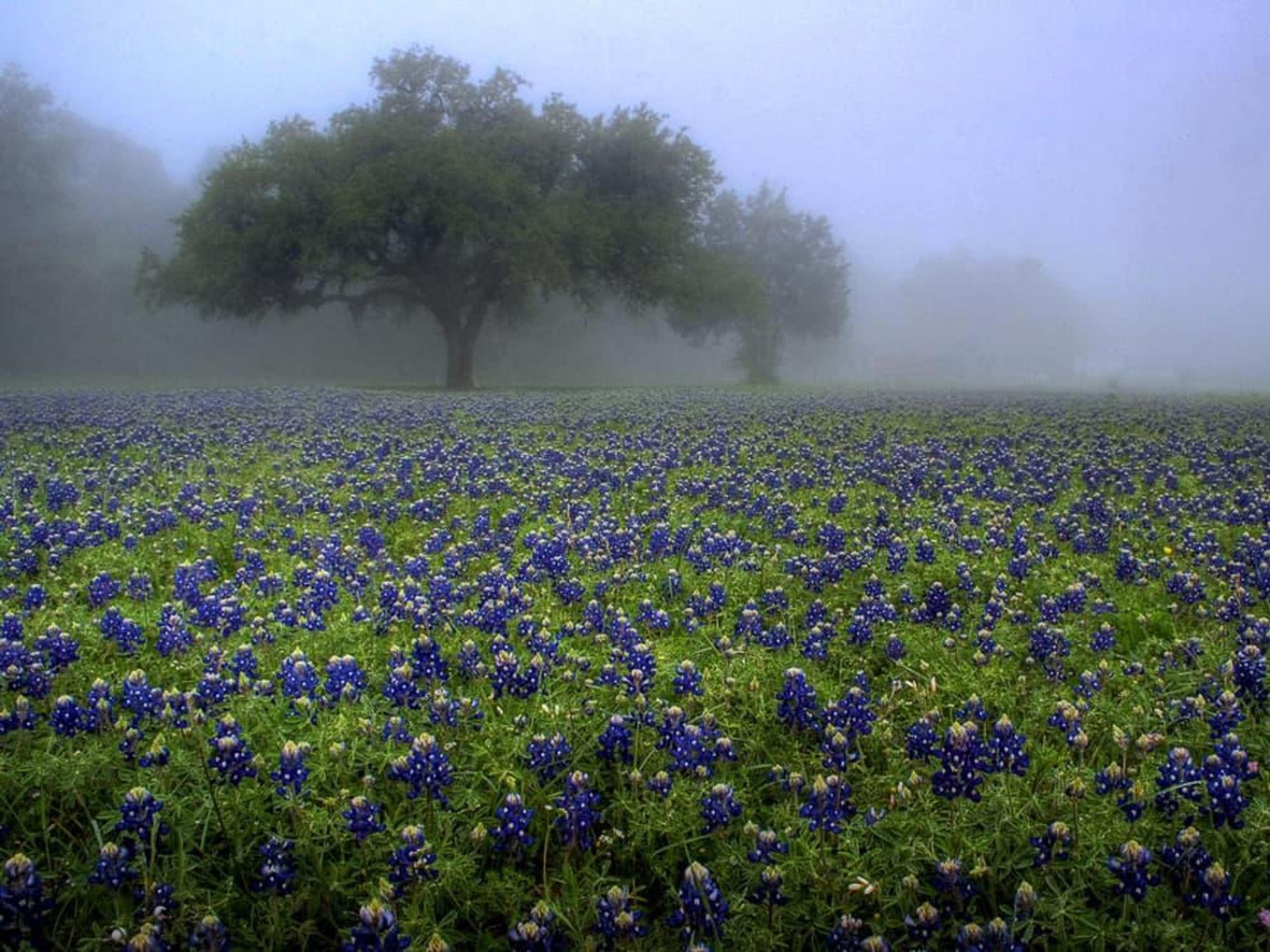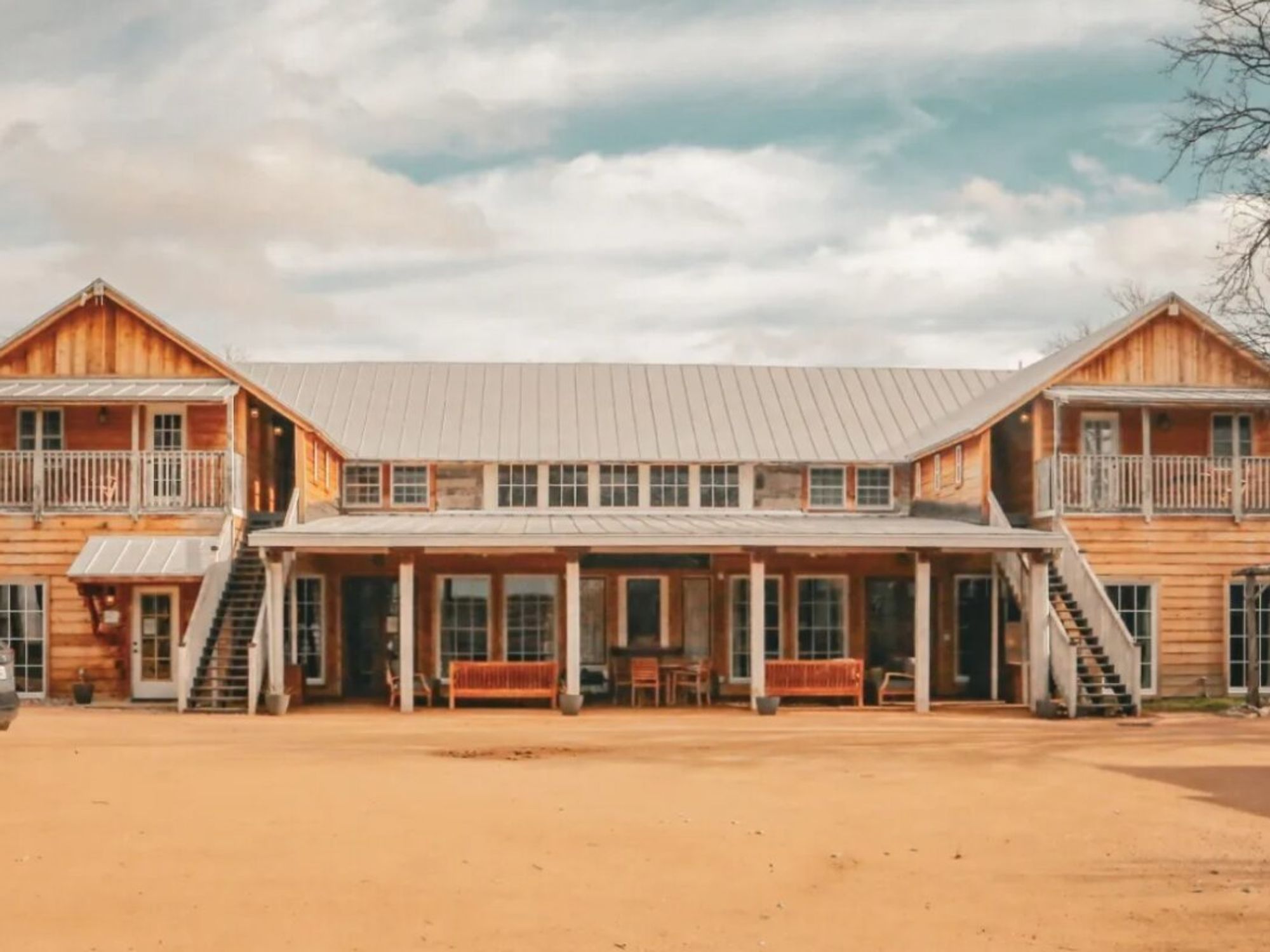Wildflower Season
When and where to see the best bluebonnets around Texas this spring

It's the magical time of year when the sun shines bright, the days grow longer, and somehow that grand Texas sky seems even bigger. It's also the time of year when bluebonnets and other wildflowers begin to dot the landscape. But unless you want to drive aimlessly up and down the highway searching for blooms, it's good to know exactly where to look.
While South Texas is already starting to see a few flowers, the rest of the state can look forward to the season beginning over the next few weeks. Experts at the University of Texas at Austin's Lady Bird Johnson Wildflower Center predict a "terrific" 2018 wildflower season thanks to a slightly drier than average winter.
“Overall, wildflowers and other spring bloomers seem right on track," said Andrea DeLong-Amaya, director of horticulture at the Wildflower Center, in a release. "We expect beautiful displays to unfold over the next month or two as is typical.” Not sure exactly what is in that beautiful display? The Wildflower Center also has a "What's in Season" tracker that helps you identify what exactly you're seeing.
And the experts agree that whether you're a budding nature enthusiast or simply in it for the Instagram, don't trample the flowers and beware of snakes and other wildlife who may also be enjoying the view.
Dallas-Fort Worth
Recent rains mean an epic wildflower season is in store for DFW, as long a last-minute freeze doesn't derail the blooms. Currently blooming are anemone, redbud trees, Mexican plum, and elbow bush.
Get your perfect bluebonnet picture during a free wildflower tour, beginning March 17, at the George W. Bush Presidential Center. Visitors can participate in a 40-minute guided walk around the 14-acre park, which is home to bluebonnets and other wildflowers.
Ennis
There are bluebonnets fans, and then there are tried and true bluebonnet enthusiasts. Such is the case with the town of Ennis, about 40 miles south of DFW. Running throughout the month of April, the Ennis Bluebonnet Trails map more than 40 miles of picturesque wildflowers. It's too early to know exactly where this year's trail will run, but those interested in making the trek should check back before April 1. For those who simply cannot get enough bluebonnets in their life, check out the town's Bluebonnet Festival, which runs April 20-22.
Austin and Central Texas
A handful of bluebonnets have already begun to bloom, but Texas' favorite flower isn't expected to peak in Central Texas until early April. Indian paintbrush, also known as prairie-fire, pink evening primrose, firewheel, and prairie verbena are also on track for a stellar season. There already are blossoms on trees like showy redbud, Mexican plum trees, and coral honeysuckle vines.
In addition to the Wildflower Center, which says it's already seeing a handful of bluebonnets, be on the lookout in area parks and, of course, highways. DeLong-Amaya also notes that Central Austinites are likely to see bluebonnets in their yards and roadways first since the urban core tends to be warmer than the suburbs and surrounding Hill Country.
Those who want a true adventure should consider attending the Wildflower Road Show. Hosted by DeLong-Amaya, the April 21 event includes a guided tour, lunch, photo ops, and a stop at Inks State Park. Tickets are $125 per person.
Brenham
Halfway between Austin and Houston, Brenham is a town that prides itself on its wildflowers. Using "Flower Watch," visitors can check in almost daily on the Visit Brenham website to see what is blooming. As of March 15, the bluebonnets are coming in a little later than usual, but there are a few clusters beginning to gather, and the town expects the season to peak at the end of March.
Among the suggested prime viewing spots is Hwy 290 East and West as you drive into Brenham; FM 1155 to 2679 in Chappell Hill; and FM 2447 and Hwy 290 at First Baptist Church of Chappell Hill (the church welcomes visitors, but requests that the parking lot remain open to members of its congregation).
Houston
The effects of Hurricane Harvey are still being felt, and the area's wildflower season is no different. According to UT's release, the Katy Prairie Conservancy is predicting a good wildflower season while the Mercer Botanical Gardens in Humble reports their plants are still recovering from the hurricane and a recent cold snap.
San Antonio and South Texas
Wildflower season in South Texas is well underway, and San Antonians are already reporting bluebonnet sightings along I-37. Those looking for a more ambling experience should check out San Antonio Botanical Garden. With more than 33 acres and the newly opened Family Adventure Garden, this is the best spot to snap that perfect pic.
On the Gulf Coast, the Padre Island National Seashore Visitor Center is already reporting sightings of scarlet pea, southern blanketflower, beach evening primrose, partridge pea, and beach ground cherry. (And off topic, but still important, the national park also celebrated the release of 12 rehabilitated sea turtles on March 9.)
Rio Grande Valley
In the Rio Grande Valley, experts say to look for flowers in Starr County, where recent rains have brought a wave of beautiful blooms including bladder pods, bahia, bitterweed, and cow pen daisy.
For a truly spectacular site, take a drive down FM 755 from Rio Grande City, where prickly poppy, blue curls, winecup, phlox, and firewheel are all at their peak.
West Texas and the Panhandle
Sadly, the West Texas bluebonnet season has already come to a close, and the wildflower season in the Texas Panhandle comes long after the rest of the state has said goodbye to their blooms. Stay up to date on potential sightings here.

 Hoffman House is the No. 1 best bed and breakfast in Fredericksburg.Photo courtesy of US News and World Report
Hoffman House is the No. 1 best bed and breakfast in Fredericksburg.Photo courtesy of US News and World Report